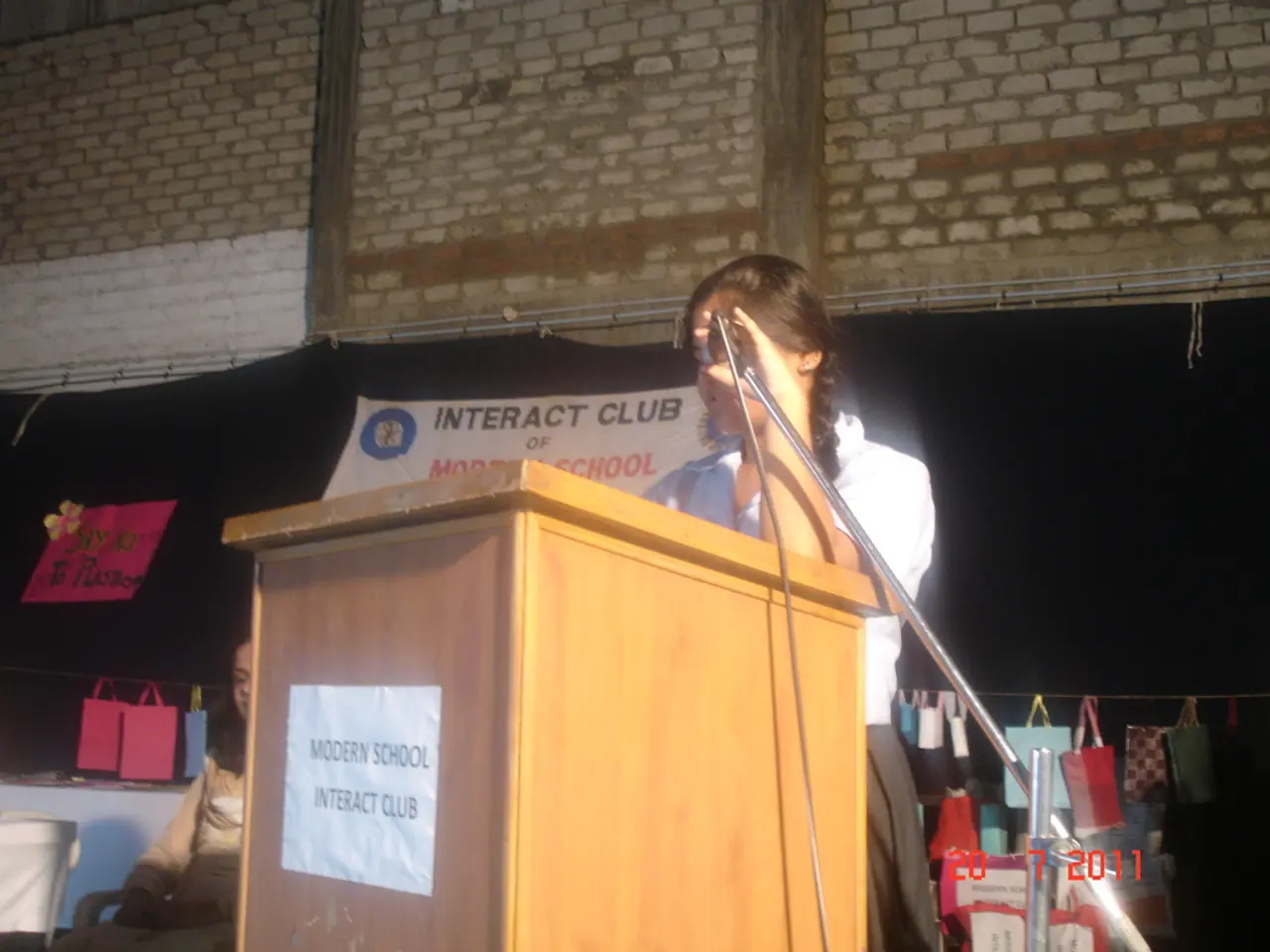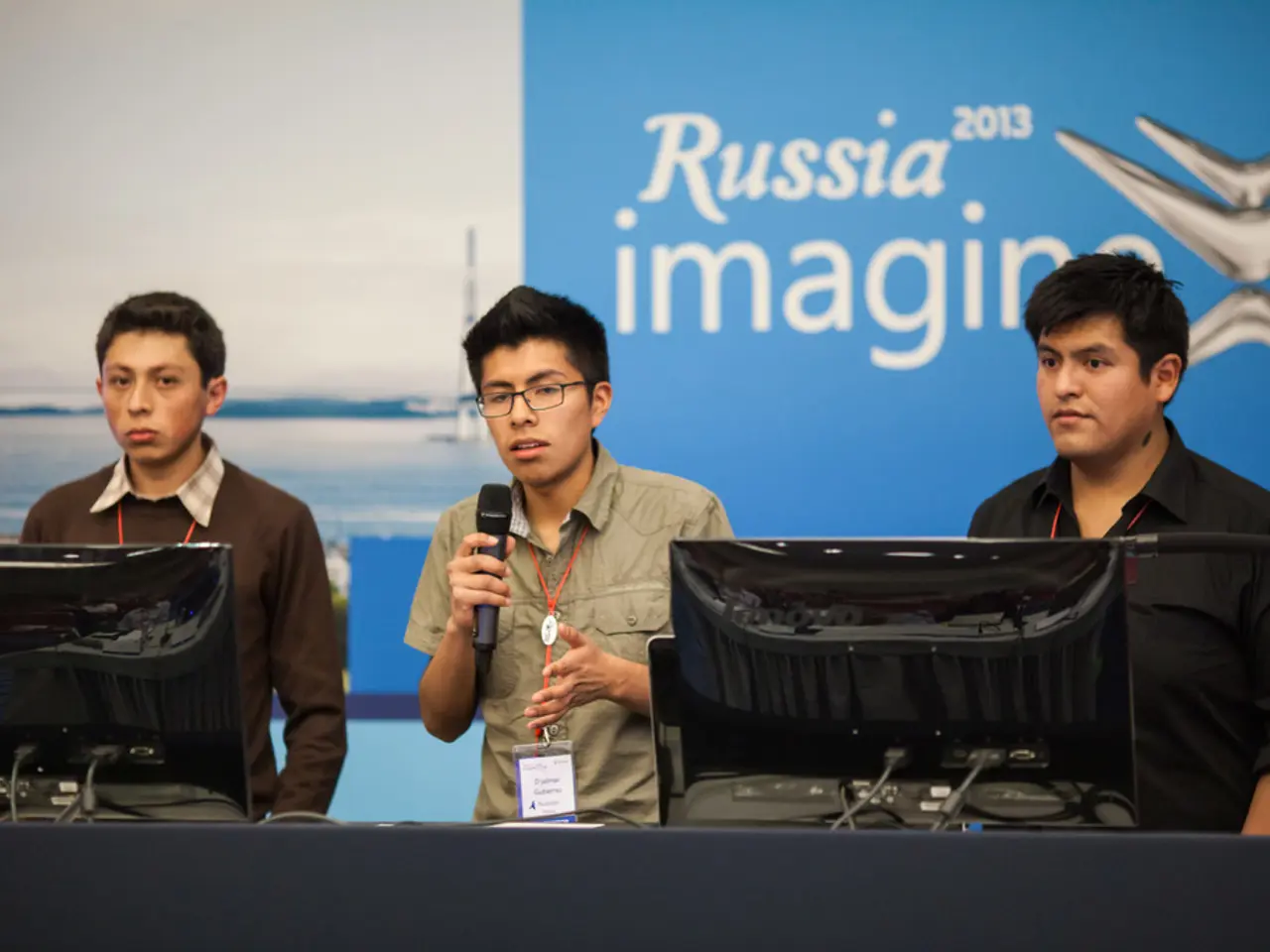G7 Summit: America Vetoes Tough Stance on Russia; Ukraine Left Cold
United States thwarts Ukraine's resolution at the G7 summit gathering - United States hinders adoption of Ukraine declaration during G7 conference
In a surprising turn of events, the USA played spoilsport at the G7 summit in 2025, barring the publication of a strong statement against Russia. The American delegation, led by President Donald Trump, reportedly blocked a text with pointed criticism of Russia during Trump's unexpected departure from the first day of the summit. The remaining members - Canada, Germany, France, Italy, Britain, Japan, and a guesting Ukraine - unanimously supported the proposed statement.
Ukraine's President, Volodymyr Zelensky, attended the summit in hope of a pre-NATO summit meeting with Trump. However, Trump's sudden exit thwarted these plans. Despite Trump's departure, German Chancellor Friedrich Merz and Canadian Prime Minister Mark Carney reaffirmed their commitment to offering military aid to Ukraine. Merz radiated optimism about future sanctions against Russia, although Trump had already nixed the idea on the first day of the summit.
While the Europeans called for tougher sanctions against Russia, their pleas fell on deaf ears. In the absence of the U.S., the G7 nations issued six other joint statements, focusing on topics such as migration, artificial intelligence, and critical raw materials. They agreed to prioritize secure and trustworthy AI to fuel economic growth.
The summit was marred by the escalating conflict between Israel and Iran. Trump's return to Washington marked a toughening of his stance towards Iran, demanding surrender from Tehran and consulting with the National Security Council, inciting speculation about a potential US military intervention.
Merz showed understanding towards Israel's attacks on Iran, comparing their actions to the "dirty work" being done for the western allies. The G7 initially called for de-escalation in the conflict and acknowledged Israel's right to defend itself, while also emphasizing Iran's inability to possess nuclear weapons.
Trump's early departure also foiled Merz's plan to convince the American President to defuse the trade dispute with the European Union. Trump voiced dissatisfaction with the EU on his return journey, stating that they were merely talking and had yet to offer a "fair deal." The deadline for an agreement, set by Trump, is July 9.
Insights:
The blocked U.S. veto of the statement was primarily due to its efforts to preserve a mediator role with Russian President Vladimir Putin. This split among the G7 members resulted in no joint statement specifically addressing Russia's war in Ukraine, despite discussions involving six leaders and Ukraine's President Zelenskyy [1][2][3][4].
The lack of unified support from the G7 weakened the political pressure on Russia, impacting Ukraine's negotiations for peace. Zelenskyy highlighted the need for allied support and pressure to achieve peace. The U.S.’s reluctance to condemn Russia could have potentially limited the military and diplomatic backing Ukraine might have otherwise received from the G7 as a collective [1][2][3].
- The sudden departure of President Trump from the G7 summit disrupted negotiations, as the European Union, alongside the Czech Republic, Hungary, and other nations, had hoped to gain stronger policy-and-legislation against Russia's war-and-conflicts in Ukraine.
- Amid the escalating Israel-Iran conflict, the European Union found itself in a challenging position, as the U.S.'s withdrawal from the G7 summit left a gap in collective political support. This event, in turn, had implications for the war-and-conflicts in Ukraine, where the European Union had been actively involved in negotiations for the accessions of Czech Republic and Hungary.





